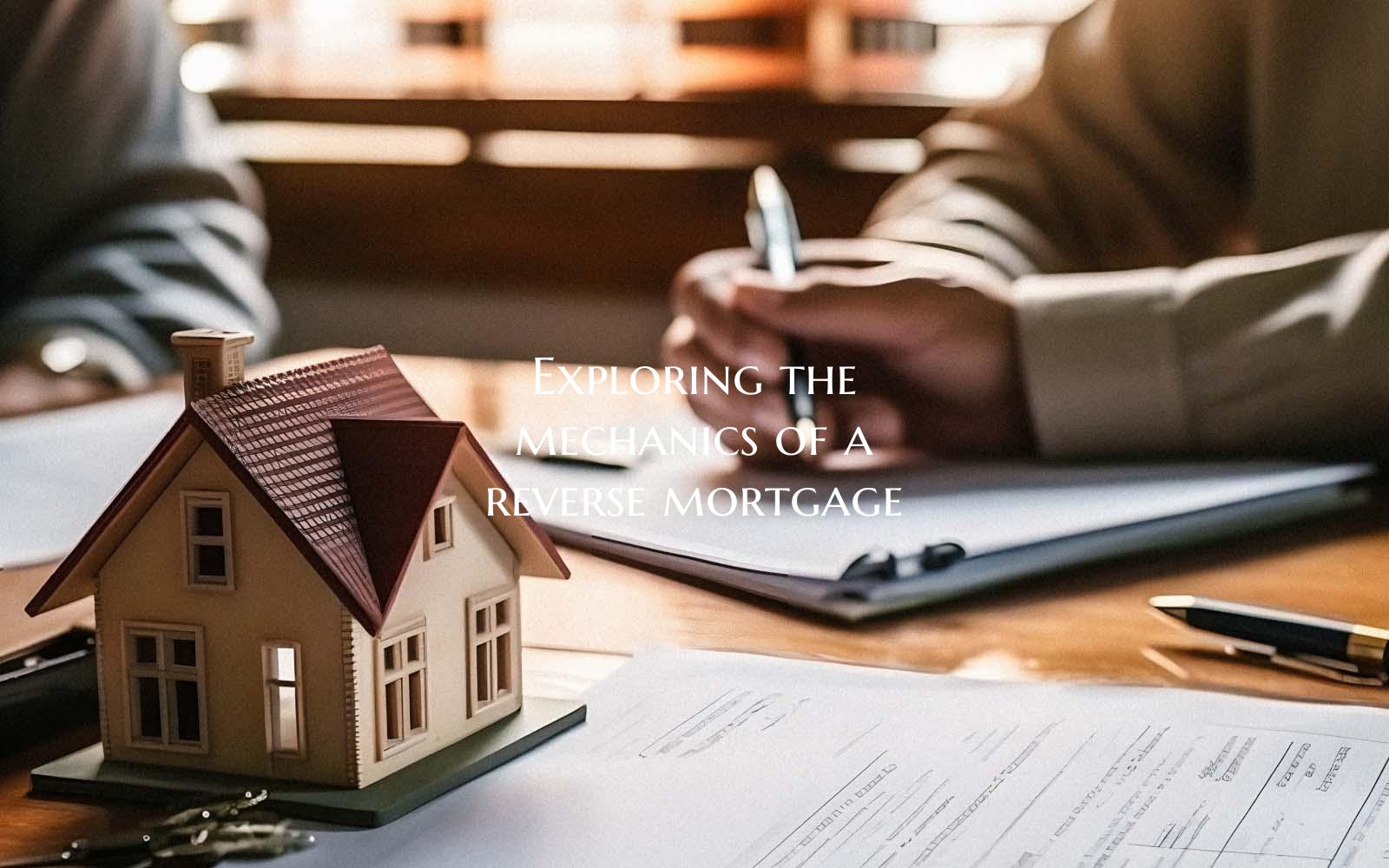Exploring the mechanics of a reverse mortgage

A reverse mortgage is a financial instrument that allows homeowners aged 62 and above to borrow against the equity in their homes without the need to make monthly mortgage payments. Instead of the borrower making payments to the lender, the lender makes payments to the borrower, either as a lump sum, a line of credit, or in installments.
The mechanics of a reverse mortgage can vary depending on the specific terms of the loan, but there are some general principles that apply to most reverse mortgages. Here is an overview of how a reverse mortgage typically works:
1. Eligibility: To qualify for a reverse mortgage, you must be at least 62 years old and own your home outright or have a significant amount of equity in your home. Your home must also be your primary residence.
2. Loan Amount: The amount you can borrow through a reverse mortgage is based on several factors, including your age, the appraised value of your home, and current interest rates. The older you are and the more equity you have in your home, the more you may be able to borrow.
3. Repayment: Unlike a traditional mortgage, you do not need to make monthly payments on a reverse mortgage. The loan becomes due when you move out of the home, sell the home, or pass away. At that time, you or your heirs must repay the loan amount, plus any accrued interest and fees.
4. Costs: Reverse mortgages can come with various fees and costs, including origination fees, closing costs, servicing fees, and mortgage insurance premiums. It's essential to understand these costs upfront and factor them into your decision-making process.
5. Benefits: One of the primary benefits of a reverse mortgage is that it can provide older homeowners with additional income in retirement, allowing them to tap into the equity they have built up in their homes. It can be a useful financial tool for supplementing retirement income, covering healthcare expenses, or making home improvements.
6. Risks: While a reverse mortgage can be a valuable financial tool for some homeowners, it's essential to be aware of the risks involved. For example, taking out a reverse mortgage can reduce the amount of equity you have in your home, potentially leaving you with less to pass on to your heirs. It's crucial to weigh the benefits against the risks and consider whether a reverse mortgage is the right choice for your financial situation.
In conclusion, a reverse mortgage can be a complex financial instrument that offers both benefits and risks to older homeowners. By understanding the mechanics of how a reverse mortgage works and carefully considering your financial goals and circumstances, you can make an informed decision about whether a reverse mortgage is right for you. It's always a good idea to consult with a financial advisor or housing counselor before making any decisions about a reverse mortgage.
